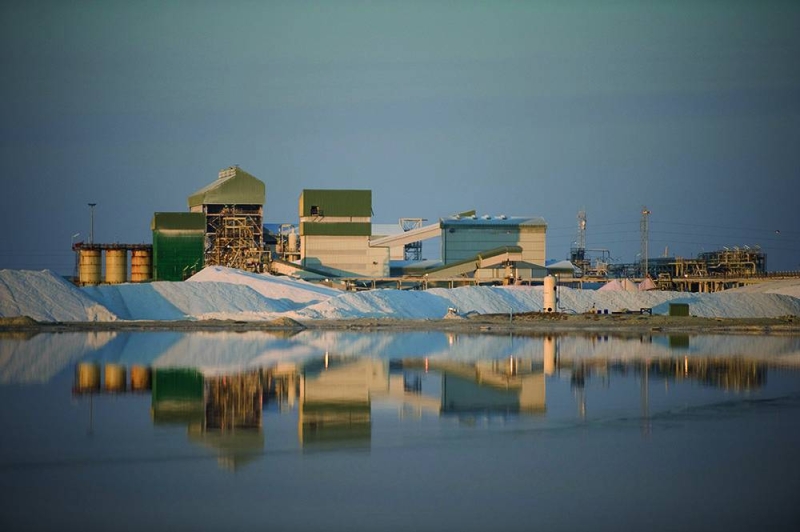Botash's sustainable mining practices boost Flamingo population
Chakalisa Dube | Tuesday July 2, 2024 11:46


He was addressing the media last Thursday following a tour of the company’s operations. Botash the largest producer of natural sodium and related products in Africa, is located in Sua Pan, within the Makgadikgadi area. The pan is one of three large within Makgadikgadi and is considered the home of flamingos in the Southern African region. When Botash was commissioned over 30 years ago, there were fears that its operations would spell the end of the flamingo population. The Sua Pan is considered one of the largest breeding grounds for flamingos in the world.
Phatshwane said that the growing number of flamingos in the pan is a result of Botash’s sustainable mining practices. “In the mid-80s, when this project was proposed, some environmentalists predicted the end of flamingos. As it turns out, the population of flamingos has increased significantly since the mine’s commissioning. “This demonstrates the true impact of responsible mineral extraction,” Phatshwane said although he didn't provide readily available figures to back his assertions. However, various conservation groups, such as the ‘Biodiversity Foundation for Africa,’ have recently posited that the number of flamingos breeding on the Sua Pan often exceeds the total estimated numbers for Southern Africa, which are approximately 47,000 Greater Flamingos and 26,000 Lesser Flamingos per breeding season.
Phatshwane emphasised that sustainable mining is very expensive, and requires extensive planning and commitment. “If you look at the pan, you wouldn't see power lines except those coming from Francistown. But beneath the pan, there are over 100 kilometres of cabling and the water table is very high,” he said. “Operating electricity in salty water also presents significant challenges, but it is a choice we made for the sake of the birds that fly over the pan. It wasn't fashionable to do it (venture into such sustainable and complex mining practices) in the 1980s. There was no compelling law either.” He added that the mine has also made a deliberate move to gradually invest in assets that aren't part of its core competence but can help promote eco-tourism. “As part of promoting ecotourism, Botash has established a game park,” Phatshwane explained.
He further elucidated that the park will be handed over to the community to run for their own benefit in the near future. “This means that even when the mine ceases operations, community members will continue managing the park. In recent years there has also been a sudden decrease in the rhino population, and Botswana realised that rhinos weren't safe and needed to be fenced and protected. Botash chose to participate in that initiative (some of the rhinos are housed at a game park owned by Botash). This shows that the company is committed to issues of conversation and biodiversity,” he added.
